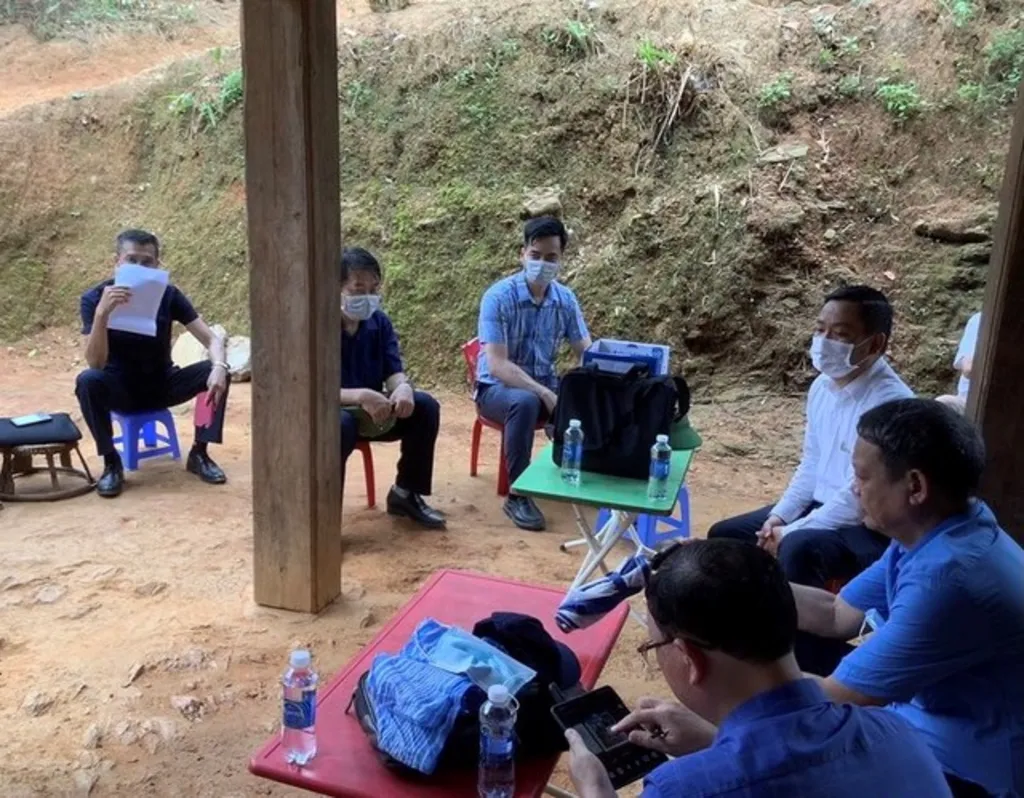 Society
Society

 |
| A working group from the Ministry of Health visit Mường Chà District, Điện Biên Province where diphtheria cases were reported. — Photo nbtv.vn |
HÀ NỘI — Three individuals have died due to diphtheria, prompting the Ministry of Health to call for early detection, isolation, and treatment of the serious infection.
The fatalities were reported in Hà Giang and Điện Biên provinces.
The Department of Medical Examination and Treatment has instructed units to train and reiterate the diphtheria diagnosis and treatment guidelines as stipulated in Decision No. 2957/QD-BYT, dated July 10, 2020, from the Ministry of Health.
This training is intended for all medical personnel participating in medical examinations and treatment, including private medical facilities in the region, to enable the early detection of suspected cases for isolation and treatment.
Simultaneously, units are required to review their equipment, drugs, and supplies in accordance with instructions for organising screening, isolation, admission and treatment of diphtheria patients as per regulations. The aim is to minimise mortality rates while ensuring infection prevention in medical examination and treatment facilities.
For clinical cases suspected of diphtheria, the priority lies in selecting antibiotics based on the guidelines for diphtheria diagnosis and treatment. Additionally, prompt sample collection for early bacterial screening to determine the appropriate treatment direction is imperative.
Medical facilities must intensify their monitoring efforts for early detection of complications, providing timely treatment and referrals when necessary. They should seek professional consultations from higher levels for challenging and severe cases before referring them.
Furthermore, prophylactic antibiotics should be administered to individuals exposed to the disease as instructed. It is crucial to enhance communication within hospitals so that patients and their families are aware of disease symptoms, enabling them to seek medical attention promptly and understand preventive measures.
Previously, in order to inspect, supervise, and direct diphtheria prevention and control efforts in Hà Giang and Điện Biên provinces, the Ministry of Health established two inspection and supervision teams led by the heads of the Department of Health and the Department of Medical Examination and Treatment. These teams also included representatives from various departments and functional units within the Ministry of Health, as well as experts from the Central Institute of Hygiene and Epidemiology and the National Children's Hospital.
These teams collaborated with the steering committees for disease prevention and control in Điện Biên and Hà Giang provinces to address various aspects of diphtheria prevention and control, such as monitoring and outbreak management, vaccination, patient care, communication and epidemic response. The teams also evaluated the situation and proposed strategies to control diphtheria in the region in the near future.
The working groups have urged the local steering committees for epidemic prevention and control to continuously review and update the provinces' diphtheria prevention and control plans. They are also advised to proactively mobilise human resources to support districts and communes in the event of an epidemic.
In Hà Giang and Điện Biên, local authorities should further enhance communication regarding diphtheria and preventive measures. Coordination between the health and education sectors is crucial for monitoring children's health in schools.
Schools should maintain regular classroom cleaning and ventilation and promptly notify medical facilities upon detecting suspected cases to facilitate immediate isolation and treatment, thus preventing outbreaks.
The provincial Health Departments are asked to strengthen their monitoring and early detection efforts in the community, collecting samples for testing to promptly identify cases and implementing comprehensive outbreak control measures. Investigations and prophylactic antibiotic treatment for close contacts should also be conducted in accordance with Ministry of Health regulations.
According to the Department of Preventive Medicine, diphtheria is an acute infectious disease caused by diphtheria bacteria. While it is common in young children, it can also affect adults lacking immunity. The disease spreads easily through respiratory droplets or direct contact with the nasopharyngeal secretions of patients or carriers when coughing or sneezing, particularly in densely populated or unsanitary areas.
Symptoms of the disease can vary in severity, often presenting with white pseudomembranes in the tonsils, pharynx, larynx, and nose, and may extend to the skin or other mucous membranes such as the conjunctiva or genitals. Severe cases can lead to complications and death.
Previously, diphtheria was prevalent in many areas across the country. However, since the inclusion of the diphtheria vaccine in the expanded vaccination programme, the disease has been effectively controlled, with only sporadic cases recorded primarily in remote areas with low vaccination rates. — VNS




